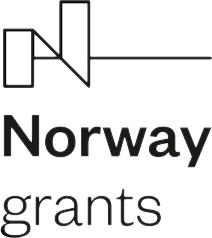 Acest site este finanțat prin Mecanismul Financiar Norvegian 2014-2021. Proiect NAS-EVAL.
Acest site este finanțat prin Mecanismul Financiar Norvegian 2014-2021. Proiect NAS-EVAL. Acest site este finanțat prin Mecanismul Financiar Norvegian 2014-2021. Proiect NAS-EVAL.
Acest site este finanțat prin Mecanismul Financiar Norvegian 2014-2021. Proiect NAS-EVAL.
Institutional architecture for preventing and fighting corruption
In Romania, the main public institutions with responsibilities that fall within the scope of the fight against corruption are the following: MoJ, Ministry of Internal Affairs (hereinafter referred to as MIA), through the General Anticorruption Directorate (hereinafter GAD) and the Romanian Police, National Integrity Agency (hereinafter ANI), the Prosecutor's Office attached to the High Court of Cassation and Justice (hereinafter referred to as the HCCJ), the National Anticorruption Directorate (hereinafter referred to as DNA) and the Fight Against Fraud Department (hereinafter DLAF) and the Prime Minister’s Inspection Body (hereinafter PMIB).
As a body of the executive power, the Ministry of Justice develops public policies, strategies and action plans in the field of justice, the prevention and fight against corruption and serious crime, including in relation to the objectives of the government programme. The National Agency for the Management of Seized Assets (hereinafter NAMSA) operates under the Ministry of Justice, with the aim of ensuring an increase in the enforcement rate of confiscation orders in criminal matters, through an efficient management of seized assets assigned to the Agency by prosecutors and judges.
The implementation of NAS is carried out under the authority and coordination of the Minister of Justice who reports to the Government. At the same time, in order to support the process of monitoring and implementing the measures provided by the strategy, the Crime Prevention Directorate (hereinafter referred to as DPC) within the MoJ provides the Technical Secretariat of the SNA.
The implementation of NAS will be performed under the authority and coordination of the minister of justice who will report to the Government. In order to support the monitoring and implementation of the measures provided for by the strategy, the Department for Crime Prevention within the Ministry of Justice (hereinafter DCP) ensures the Technical Secretariat of NAS.
The National Integrity Agency deals with the collection, monitoring and verification of declarations of assets and interests, in order to identify possible incompatibilities, conflicts of interest and unjustified assets. ANI is an autonomous institution, which is not subordinated to any other public authority or institution. The Agency monitors whether public institutions have collected and published the declarations of assets of their officials and verifies their correctness. ANI applies sanctions only in case of non-submission of declarations. If the Agency finds irregularities in the declarations, it shall refer the matter to the competent authorities.
The Public Ministry investigates small level corruption cases, through the prosecutor's offices attached to the courts, the prosecutor's offices attached to the specialized courts, the military prosecutor's offices, as well as through the prosecutor's offices attached to the courts of appeal.
The National Anticorruption Directorate is a prosecutor's office specializing in combating medium and high level corruption. It was created as a necessary tool in discovering, investigating and bringing to court medium and high-level corruption cases. Through its activity, it contributes to reducing corruption, thus supporting a democratic society close to European values. DNA is an independent entity in relation to the courts, the prosecutor's offices attached to them, as well as in relation with other public authorities.
The Ministry of Internal Affairs develops public policies in this area and has a subordinate structure specialized in approaching different aspects of the activity for preventing and combating corruption. The General Anticorruption Directorate has attributions in the field of preventing and combating corruption at MIA level, carrying out activities of investigating and analysing corruption offences committed by the MIA staff. GAD supported HCCJ and DNA in the activity of investigating complex criminal cases, and the decision of the High Court of Cassation and Justice no. 21 of 07 July 2020 clarified the area of competence of this institution. However, in the future, it is necessary to analyse and, as appropriate, revise the regulatory and operational framework of DGA, in order to adapt the operational capacity to the trends and dynamics of the corruption phenomenon.
The Romanian Police carries out activities to prevent and fight corruption, according to its legal competences. Thus, the Romanian Police, through its economic crimes investigation structures, carries out activities of investigating and analysing crimes, including those of corruption. At the same time, the Romanian Police, through its special operations structures, uses undercover investigators and carries out activities for the execution of technical supervision warrants also for corruption cases.
The Fight Against Fraud Department is organized as a structure with legal personality within the Government and fulfils the following functions:
Given the prevention and education component of this strategic approach, the implementation of measures requires timely support from other institutional partners, such as: the Ministry of Labour and Social Protection, the Ministry of Education, the Ministry of Health and the Ministry of Development, Public Works and Administration.
The Prime Minister’s Inspection Body and the inspection structures within the central public administration carry out administrative control activities consisting in checking the observance by the controlled public bodies of the legal provisions regarding their organization and functioning, respectively the fulfilment of general and specific attributions, aiming at identifying possible violations of such provisions.
Limits on action affecting the national capacity to prevent and combat corruption